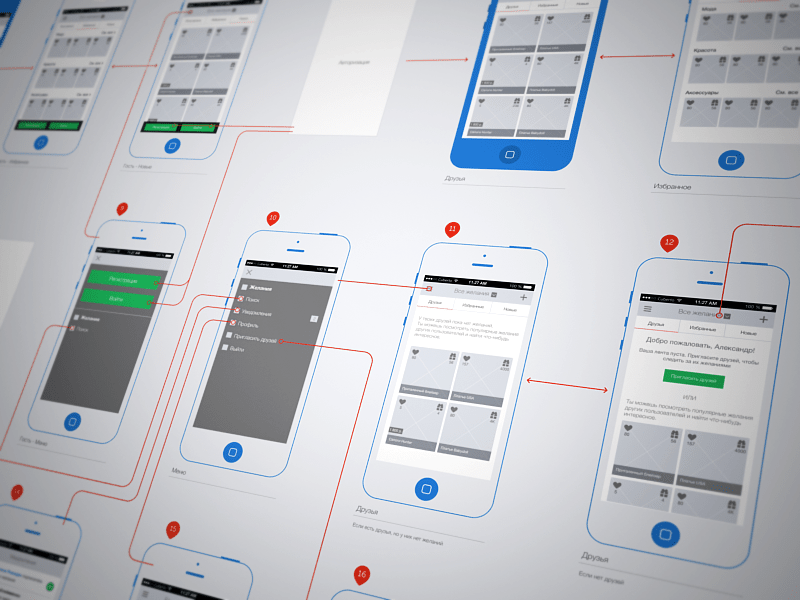Key Takeaways
- Does your developer team know how to build scalable web applications?
- Next time you get on call with your developer team, do ask them about how to build highly scalable web applications.
- Read our blog to learn how scalable web applications help in securing a long-term future for your business.
In our digital age, web applications have transformed into a cornerstone for successful businesses!
They help in catering a vital interface among the customers and the business.
But as the business grows, these web applications or web apps need to scale, and thus we bring you our latest blog on scalable web applications!
If you are a business owner, a software developer, a web app developer, a project manager, or a tech enthusiast, this blog will help you build scalable web applications.
A few facts about scalable web applications
- 16% of the un-updated web apps could be hacked to gain full control, while 8% of them even allowed hacking of local networks!
- Scalable web applications are helping drop the vulnerabilities by 17% year over year.
- 38% of the users avoid visiting a website or a web app if the design and content are not engaging enough!
- Nowadays, websites and web apps get only 10 seconds to impress the visitor.
- Users prefer a load time of less than 2 seconds!
Scalable Web Applications: The Understanding
In a web app, scalability refers to its performance and capacity!
When your web app will be bombarded by user requests (booming business), will it be able to handle the pressure or crash?
You can always add in more resources, but it is about using the ones you currently have in an efficient manner!
A scalable web application will be able to handle any increased number of user interactions without a drop in quality.
Scalable web applications: The Importance
Any app, be it a mobile app or a web app, if encounters any unexpected downtime, then it is going to affect the user count!
If the web app is used quite often, then any unexpected downtime will lead to negative promotion on social media platforms as well.
So, it is vital that your web applications are scalable and ready for any unexpected scenarios. This develops reliability & trust in your web app and overall business operations.
Scalable Web Applications: Right Hosting & Cloud Services
After understanding the scalability needed in web apps and its importance, it is time to help you choose the right cloud & hosting services.
Your hosting provider must have,
- Flexible plans (Pay-as-you-Use),
- Global Reach and Coverage, and
- 24*7 Support.
So that when the time comes, your web app can easily increase its resource usage and you can pay accordingly!
Global reach and coverage help in case one of the data centres of your hosting & cloud provider goes down.
24*7 support helps in ensuring real-time support, which will guarantee 100% up-time for your scalable web applications.
Scalable Web Applications: Scalable Design
Now we will show you how you can get your web apps designed so that they are scalable from the beginning!
Here are the key techniques to ensure scalable web applications:
- Round-robin Approach
It helps in distributing the requests across various servers in a sequential manner!
- IP Hash Approach
It ensures that a particular user’s request goes to the same server, helping to prevent any excess time spent to bring all the previous interactions of the user from other servers.
- Least Connections Approach
It helps in prioritizing that server, which has fewer requests at the moment!
Now let us give you a brief about various scalable web application methodologies, and they are as follows:
Stateless Applications
Stateless apps are the revolutionary innovation of the 21st century that help a business by not storing any user data between two sessions.
Plus, they can handle server requests from multiple servers’ that helps in balancing the load of a web app!
Load Balancing
Load balancing is a useful technique that helps in balancing the load and distributing it amongst various servers.
This means that one server will not get burdened by requests from various locations or large amounts of multiple requests from a single location.
Vertical Scaling vs. Horizontal Scaling: Database Architecture
The database architecture you utilize for your scalable web applications is crucial, be it vertical scaling or horizontal scaling!
In vertical scaling, or scaling up, more resources are added onto a single server, i.e., RAM, CPU, GPU, storage, and more.
While in cases of horizontal scaling or scaling out, more servers are added. This approach is much more feasible as it allows cloud hosting services.
Modular Architecture & Microservices
Microservices architecture helps in devising scalable web applications by dividing each feature, functionality, and service into separate builds joined together by APIs.
So that if one aspect of your web app needs improvements, the rest keeps functioning as usual! Thus, this is the best way for developing scalable web applications.
While Modular architecture divides a web app into modules, these modules can be worked upon separately without hampering other modules.
Scalable Web Applications: Security Considerations
As you make your web apps more scalable, they become more prone to cyberattacks!
Because if you build an app in one go, then there are fewer entry points, but in the case of scalable web applications, there will be too many entry points, especially in the case of microservices and modular architecture.
So, to guarantee that your scalable web applications are also safe, you must,
- Use Safe Coding practices.
- Conduct regular Audits.
- Use trusted Security frameworks and tools.
- Safe data storage facilities.
- Encrypted data transmission.
- Safe Data backups and recovery methods.
This helps not only in keeping your scalable web applications safe but also in data compliances needed by various countries like GDPR in Europe!
Scalable Web Applications: Performance Testing & Monitoring
As conveyed earlier in the security considerations discussion, regular audits are vital to know the current performance of your scalable web applications and then optimize them accordingly!
This not only helps in keeping your scalable web applications online 100% but also ensures that you are using the resources in the backend efficiently.
For example, when you audit your scalable web applications, you get to know,
- If there is a need for scaling, be it horizontal or vertical!
- If you are using unnecessary resources at the cloud hosting servers.
- If your web app needs a new database architecture or not.
- If your web app is secure or not!
You can use Application Performance Management (APM) tools like New Relic, Dynatrace, AppDynamics, SolarWinds and more to accurately track & optimize the scalable web applications.
You can also skip all this hassle and opt for Wildnet Technologies to let them build & maintain your scalable web applications!
Scalable Web Applications: The Power of DevOps and Continuous Deployment
DevOps, or the conjunction of development and operations, is the vital stage that finally shapes & modifies a web app into transforming it into a scalable web application.
And thus, one cannot overlook DevOps, as many businesses do, which leads to poor after-launch performance of the web app in the near future.
This puts a dent in the brand image and paints the brand in a negative light forever!
So, always take DevOps into consideration to update and deploy changes in your scalable web applications to ensure a top-notch user experience.
Conclusion: Scalable Web Applications are the Future!
As we depicted in the above blog, scalable web applications are the way forward for all businesses and their varied customer & vendor interactions.
Developing scalable web applications is easier if done from scratch, but if you already have a web app and need to align it with the future, you must opt for scalability as well!
Scalable web applications are automatically utilizing the best and most trusted methodologies for web app development & thus bring your apps up to speed with current digital innovation.
Plus, all the extra features like AI & ML, AR & VR, and more can also be seamlessly integrated into the scalable web applications.
Wildnet Technologies is a leading Web App Development company in India that has helped 4100+ clients with their website, app, and web app development needs successfully via our Design & Development services!
If you would like to know more,
- AI-driven Web Development: The Future of Website Development Services
- Mobile Apps for Emerging Markets: Global Outreach Strategies
- Wildnet’s Digital Yum (our thought leadership’s weekly POV on the latest in the Digital transformation industry)
Contact us now at info@wildnettechnologies.com and get yourselves some scalable web applications!
FAQs
FAQ 1. What are the most important factors to consider when designing scalable applications?
Ans: The most important factors to consider in the case of scalable web applications are hosting services, scaling (horizontal & vertical), database architecture (microservices & modular) and security concerns.
FAQ 2. What aspects would you consider while building a scalable software tool?
Ans: Factors like security, secure data storage & transmission, and the above mentioned factors need to be considered when building a scalable software tool.
FAQ 3. How to improve scalability of web applications?
Ans: By partnering up with Wildnet Technologies, you can easily improve the scalability of your web applications.
FAQ 4. What is a scalable web application?
Ans: A scalable web application will be able to handle any unexpected increase in the number of requests so that the web app never goes down!
FAQ 5. Which service is used for deploying scalable web applications on GCP?
Ans: GCP, or Google Cloud Platform, allows Cloud Run to deploy scalable web applications on it.
FAQ 6. How do you ensure writing clean, maintainable, and scalable code for web applications?
Ans: By engaging web app developers from Wildnet either on a contractual basis or by delegating the whole development project to us!






